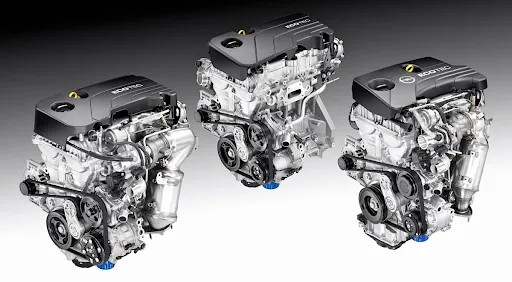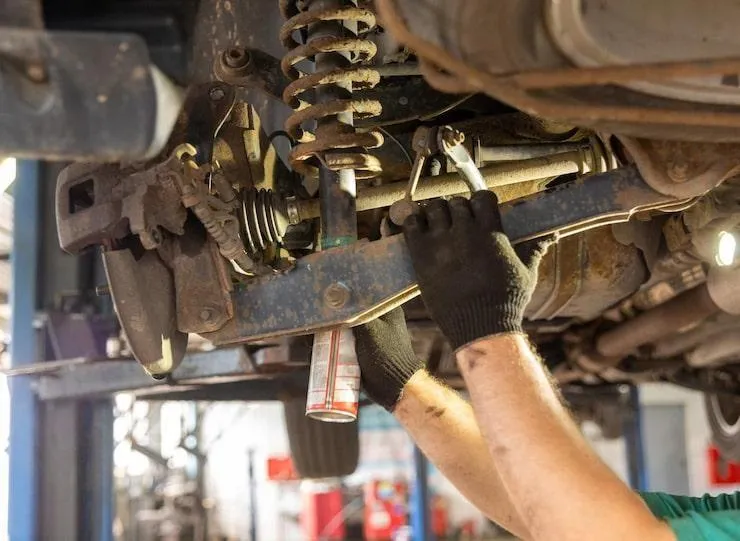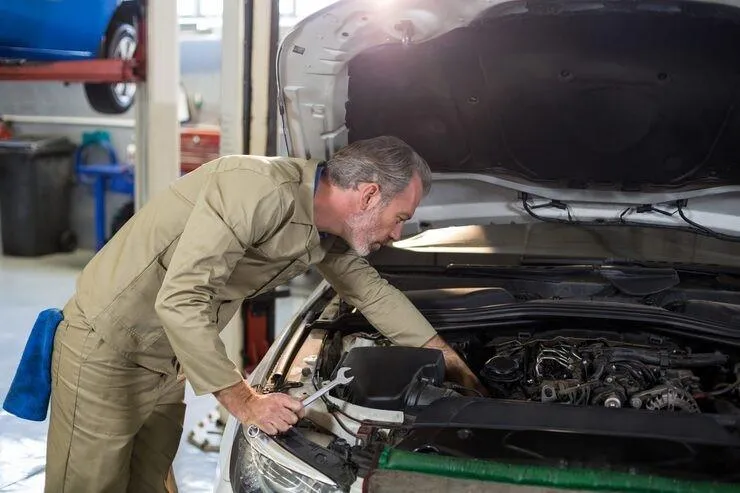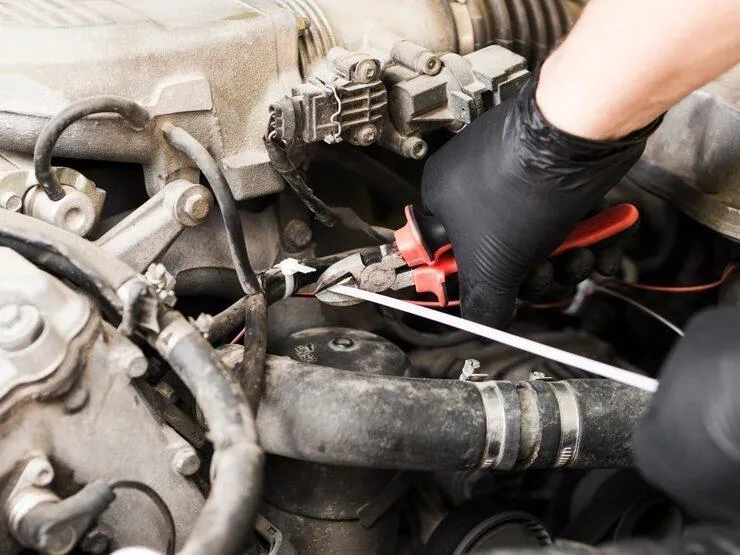Mon - Fri: 8am - 5pm, Sat - Sun: Closed

6-36 Month Warranties
We Ship Local.
Hablamos Español.
Connect with
Torque Converter Symptoms and Fixes
Torque Converter Shudder
Signs of torque converter problems
A failing torque converter can present different symptoms depending on the truck and transmission model. One of the most common signs is torque converter shudder, often felt at highway speeds when the vehicle vibrates as the clutch struggles to lock up. Another clear indicator is stalling at stoplights or low idle, which happens when the converter fails to release properly.
Other warning signs include slipping during acceleration or difficulty maintaining highway speed. Diagnostic trouble codes like P0741 fix (torque converter clutch stuck off) or P2761 may also show up during scans. Additionally, fluid overheating or finding clutch material in the transmission pan indicates internal wear. Spotting these issues early can help prevent major failures and avoid expensive repairs.



Truck owners should understand that not every symptom points to a full transmission replacement. In many cases, converter failure alone is the real issue. Recognizing the difference between converter issues and overall transmission damage can prevent unnecessary repairs, saving both money and downtime. Proper diagnosis is key to identifying whether the torque converter or the transmission is at fault, helping vehicle owners make informed decisions and avoid costly replacements when only minor repairs are needed.
Causes of torque converter failures

Several root causes lead to torque converter issues, with the most common being clutch degradation from age, heavy towing, or contaminated fluid. When transmission fluid overheats, it loses its protective qualities, accelerating internal wear. This is especially common in GM 6L80 converter issues and Ford 6R80 lockup concerns, often caused by repeated heat cycles.
Towing overload is another frequent problem. Trucks pulling beyond their rated limits put extra stress on the converter, causing transmission shudder at highway speeds. Sometimes, a fluid flush and filter replacement can help, but severe clutch wear often requires a full converter replacement or complete rebuild. For reliable diagnosis and repair, many turn to Houston transmission replacement experts, who specialize in identifying and fixing these problems before they lead to more costly transmission damage.
While preventive maintenance can extend converter life, once overheating and slipping begin, repair should not be delayed. Ignoring these early signs often results in complete transmission failure, which is far more expensive to fix. Addressing torque converter issues at the first warning signs helps prevent additional damage, reduces downtime, and protects other vital transmission components. Timely attention not only saves money but also ensures your truck continues to perform reliably under normal driving or towing conditions.
Model-specific problems in popular trucks
Torque converter problems are a common concern across many half-ton and heavy-duty trucks, often leading to drivability issues, poor performance, and costly repairs if not addressed early. In GM trucks equipped with 6L80 and 6L90 transmissions, one of the most frequent failures involves lockup clutch wear. These transmissions are known to develop shuddering at highway speeds, especially under light throttle, as the clutch fails to engage smoothly. Many owners choose to upgrade to aftermarket converters or opt for matched remanufactured units that offer improved durability and better heat resistance to solve this problem.
Ford trucks using the 6R80 and newer 10R80 units are also known to suffer from Ford 6R80 lockup problems. These failures often stem from fluid contamination or overheating, particularly when the tow/haul mode is misused or neglected. On the Ram side, trucks equipped with the 68RFE torque converter are infamous for early clutch failure, especially when used for heavy towing. In most cases, the most effective solution is installing upgraded converters with reinforced lockup clutches built to handle high torque and repeated heat cycles.
Additionally, the Ford 6R140 heavy-duty transmission has a reputation for converter clutch wear when subjected to regular towing and load-heavy applications. Without proper cooling, excessive heat accelerates internal wear. To prevent premature failure, owners are encouraged to install auxiliary coolers and perform frequent ATF changes as part of regular maintenance.
For all truck owners, the key takeaway is to recognize platform-specific weak points and address them proactively. Choosing a remanufactured transmission with an upgraded converter from a trusted supplier offers greater reliability, improved performance, and peace of mind—especially for those who rely on their vehicles for work, towing, and demanding driving conditions.
Preventing converter and transmission damage
Preventive measures are essential to avoid premature failure of your transmission and torque converter. Always use the manufacturer’s specified ATF to maintain proper friction characteristics, as incorrect fluid can lead to clutch wear and overheating. Installing auxiliary transmission coolers is highly recommended, especially for trucks frequently used for towing, as they help keep temperatures in check. Proper use of tow/haul mode on GM, Ford, and Ram trucks also plays a key role in keeping the transmission operating within safe parameters during heavy loads.
After installing a new converter or transmission, performing the correct relearn procedures is critical. This ensures that the torque converter clutch applies smoothly and avoids shudder or engagement problems. Skipping the relearn process can result in drivability issues, even with brand-new components. For truck owners who tow regularly, following proven truck towing transmission tips is vital to ensuring long-term reliability. Proper maintenance and operation not only protect the transmission but also extend the life of the converter under demanding conditions.

Finding the right replacement solution
When torque converter failure is confirmed, truck owners must decide whether to replace just the converter or upgrade to a remanufactured transmission with a matched converter. For high-mileage vehicles, replacing the full unit often offers better value, as internal wear typically extends beyond the converter itself. A complete solution ensures long-term reliability, especially for trucks used in towing or other demanding conditions.
For drivers in the Houston area, sourcing quality replacements locally can reduce shipping costs and downtime. Houston Engines provides remanufactured transmissions with converters designed to address known weak points in GM, Ford, and Ram platforms. Using an upgraded unit lowers the risk of repeat failures, making it ideal for heavy-duty use or trucks frequently under load.
Another advantage of remanufactured solutions is that they are tested for durability and come with a warranty, giving truck owners added peace of mind. A reputable supplier ensures that enhancements—like stronger lockup clutches and improved fluid pathways—are built into the transmission to handle real-world stress.
To learn more about available options or to schedule service, contact us. Whether you’re looking for a direct Houston transmission replacement or a remanufactured torque converter matched to your truck, the right solution will reduce downtime and protect your investment. With accurate diagnosis and smart preventive steps, drivers can avoid costly failures and keep their vehicles running reliably for years to come.
Get our latest news and promos
QUALITY ASSURED


SATISFACTION GUARANTEED

UNPARALLELED SUPPORT
Houston Engines
Proud Member



Social Media
Payments Accepted
Ship Via











